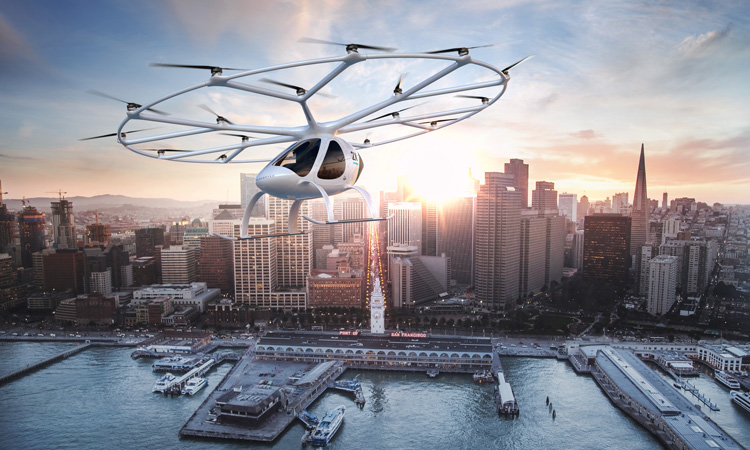Volocopter releases roadmap for urban air mobility implementation
- Like
- Digg
- Del
- Tumblr
- VKontakte
- Buffer
- Love This
- Odnoklassniki
- Meneame
- Blogger
- Amazon
- Yahoo Mail
- Gmail
- AOL
- Newsvine
- HackerNews
- Evernote
- MySpace
- Mail.ru
- Viadeo
- Line
- Comments
- Yummly
- SMS
- Viber
- Telegram
- Subscribe
- Skype
- Facebook Messenger
- Kakao
- LiveJournal
- Yammer
- Edgar
- Fintel
- Mix
- Instapaper
- Copy Link
Posted: 24 March 2021 | Intelligent Transport | No comments yet
Volocopter says successful approaches to implementing urban air mobility will put customers first in every aspect, including safety, aircraft design, and air operations.


Urban air mobility company Volocopter has published a white paper to lay out what it thinks are the key steps to achieving the widespread adoption of air mobility in the future. Entitled “The Roadmap to Scalable Urban Air Mobility”, the paper outlines what is needed to operate the full ecosystem enabling urban air mobility.
“Volocopter is leading the pack for implementing urban air mobility internationally. With our VoloCity and chosen go-to-market approach, we can fit into the existing ecosystem well enough to get started in the next two to three years,” said Florian Reuter, CEO of Volocopter.
“However, in order to subsequently scale our operations in a safe and efficient manner and offer a fantastic experience to our customers, we need to establish a comprehensive and integrated UAM ecosystem. This is what we are doing together with our partners.”
The paper directly confronts the current challenges facing the electric vertical take-off and landing (eVTOL) industry with solutions focused on a holistic partnership approach for introducing this next dimension of mobility.
While the technical details are equally important to create the aircraft, this new white paper provides a glimpse into the complexity of the ecosystem around the aircraft. It gives an overview of what UAM is, what progress has been made, and how Volocopter plans to implement their UAM services in cities like Singapore and Paris with a scalable business approach.
The paper claims that the UAM industry is expected to have a €11.3 trillion addressable market by 2035, with a €241 billion market potential. Over half of the market potential lies in passenger mobility (eg air taxi services), and the rest is covered by logistic-type, cargo services.
In addition, Volocopter says strong partnerships and an ecosystem strategy will play a pivotal role for entry into the electric air taxi market and setting a precedent for future UAM services. Above all however is a focus on customers. The air mobility company says the most successful approach will put the customers first in all critical areas including safety, infrastructure, aircraft design, air operations, city integration, and acceptance.
Digitalisation and autonomous flight will help decrease prices for air taxi services in the long-term, according to the new whitepaper. Volocopter says plans are already underway to ensure that the aircraft produced can fly autonomously and that all various components of the UAM ecosystem can be connected using a digital backbone and platform.
Related topics
Alternative Power, Infrastructure & Urban Planning, Mobility Services, On-Demand Transport, Passenger Experience, Sustainable Urban Transport, Transport Governance & Policy, Vehicle & Passenger Safety
Related modes
Air taxi
Related organisations
VoloCopter
Related people
Florian Reuter








